Vladimir Ashkenazy should be made an honorary Finn: not just for his constant championship of Sibelius’s orchestral works throughout his conducting life so far, but above all for the way he understands them. On the evidence of last night’s 150th anniversary concert, crowned by a superbly direct performance of the Second Symphony, his approach is now thoroughly Finnish at the deepest level in the way that it paces the sentiment, effortlessly negotiates the shifts of mood without histrionics and shears the music of romantic rhetoric. No Slavic or Teutonic plushness here.
The first half, a relatively simple Nordic bouquet, mostly favoured the miniature side and melodic gifts of a composer whose prolific range, despite his early retirement from major composition over three decades before his death in 1957, has still to be fully appreciated. The exception to the miniature rule stood at the flower-arrangement’s centre – Luonnotar, his tone-poem for soprano and orchestra based on the national epic Kalevala’s most beguiling of creation myths. Ashkenazy flowed from one atmospheric pianissimo, the Death of Mélisande which concludes Sibelius's all too rarely heard incidental music for Maeterlinck’s play, into another, the air full of spirits buzzing in tremolo strings before the nature-goddess floats on the sea for 700 years (the work is only eight minutes long, but what a universe it covers, and how contemporary it still sounds).
 Helena Juntunen (pictured right by Heikki Tuuli), riveting in rune-covered mythic evening wear, acted out this “in the beginning” with keen inflection of the Finnish text; memories flooded back of Susan Gritton in a vertical boat as directed by Fiona Shaw, but here the visuals were all in the imagination. Perhaps this evocation wasn’t quite as other-worldly as Anu Komsi’s with husband Sakari Oramo in his unforgettable BBC Symphony Orchestra debut concert; nor is the voice as opulent as Karita Mattila’s or Soile Isokoski’s, less prone to open out at the top of the cruel range Sibelius commands. But Juntunen’s own distinctive clarity and fast vibrato cut through the rather thick orchestration of the four more modest but evocative Sibelius songs (a pity none of the composer’s own arrangements were chosen). Kirsten Flagstad’s heroic delivery may be carved on the memory, but Juntunen is unique.
Helena Juntunen (pictured right by Heikki Tuuli), riveting in rune-covered mythic evening wear, acted out this “in the beginning” with keen inflection of the Finnish text; memories flooded back of Susan Gritton in a vertical boat as directed by Fiona Shaw, but here the visuals were all in the imagination. Perhaps this evocation wasn’t quite as other-worldly as Anu Komsi’s with husband Sakari Oramo in his unforgettable BBC Symphony Orchestra debut concert; nor is the voice as opulent as Karita Mattila’s or Soile Isokoski’s, less prone to open out at the top of the cruel range Sibelius commands. But Juntunen’s own distinctive clarity and fast vibrato cut through the rather thick orchestration of the four more modest but evocative Sibelius songs (a pity none of the composer’s own arrangements were chosen). Kirsten Flagstad’s heroic delivery may be carved on the memory, but Juntunen is unique.
Between the vocal numbers, the Andante Festivo provided an anthemic gesture of intent for the larger work to come: sinewy strings full of implicit emotion rather than lush billowing. What proved most revelatory about the beautifully-textured interpretation of the Second Symphony – Philharmonia horns handsomely forthright, very vocal work from the two superb bassoonists – was Ashkenazy’s grasp of the way in which the real climaxes need to be postponed until the very end of the movements.
That may be obvious for the brass fanfare which crown the finale, neither too pushed nor too complacent here, and approached by the most impressive long-term crescendo I think I've ever heard in any performance. The centres of gravity were less predictable in the cases of the opening Allegretto's crowning motif, sealed only just before the final fade and the big unfurling before the abrupt coda of the slow movement. The previous evening I’d heard the Vienna Philharmonic in Odense seize the wrong end of the stick, however beautifully, in Sibelius and even more so in Nielsen, so it was refreshing to come home and be reminded what this music is really all about.
- Two more main London concerts to go in the Philharmonia's 2014-15 season, on 25 and 28 June
- David Nice's blog on a special visit to Sibelius's home, Ainola
Overleaf: watch the Philharmonia's superb film on Ashkenazy's visit to Finland in search of Sibelius's essence








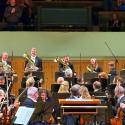
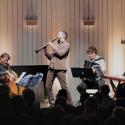

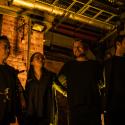
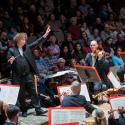
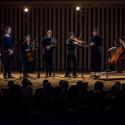
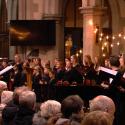
Add comment